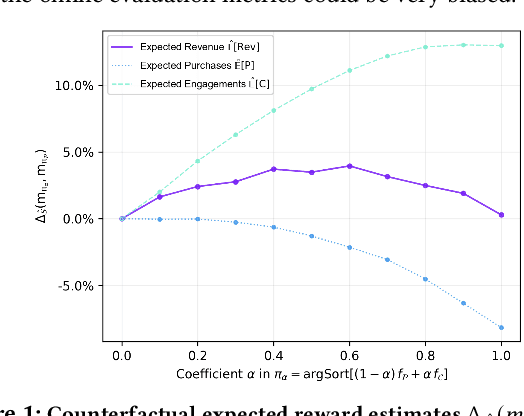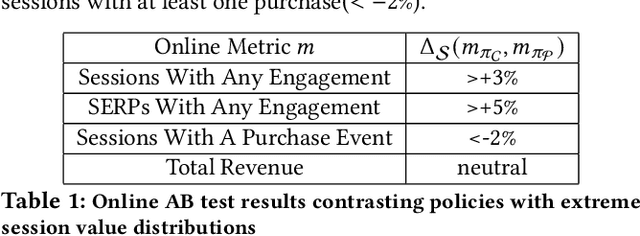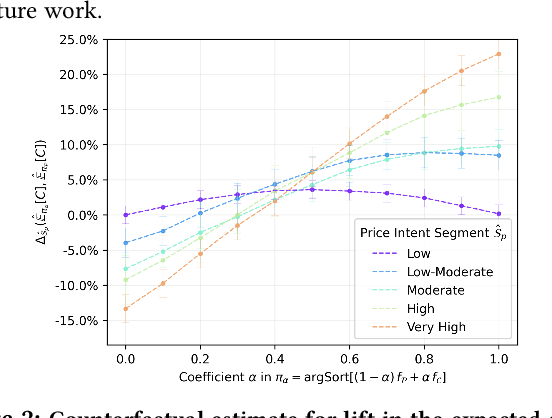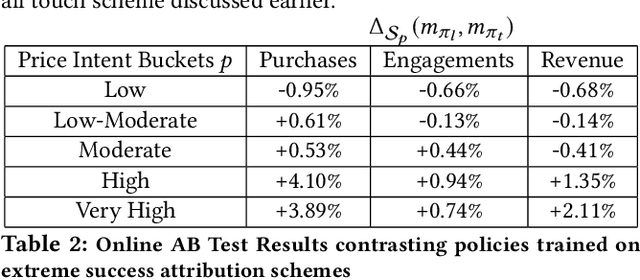Alex Cozzi
Ranking Policy Learning via Marketplace Expected Value Estimation From Observational Data
Oct 06, 2024



Abstract:We develop a decision making framework to cast the problem of learning a ranking policy for search or recommendation engines in a two-sided e-commerce marketplace as an expected reward optimization problem using observational data. As a value allocation mechanism, the ranking policy allocates retrieved items to the designated slots so as to maximize the user utility from the slotted items, at any given stage of the shopping journey. The objective of this allocation can in turn be defined with respect to the underlying probabilistic user browsing model as the expected number of interaction events on presented items matching the user intent, given the ranking context. Through recognizing the effect of ranking as an intervention action to inform users' interactions with slotted items and the corresponding economic value of the interaction events for the marketplace, we formulate the expected reward of the marketplace as the collective value from all presented ranking actions. The key element in this formulation is a notion of context value distribution, which signifies not only the attribution of value to ranking interventions within a session but also the distribution of marketplace reward across user sessions. We build empirical estimates for the expected reward of the marketplace from observational data that account for the heterogeneity of economic value across session contexts as well as the distribution shifts in learning from observational user activity data. The ranking policy can then be trained by optimizing the empirical expected reward estimates via standard Bayesian inference techniques. We report empirical results for a product search ranking task in a major e-commerce platform demonstrating the fundamental trade-offs governed by ranking polices trained on empirical reward estimates with respect to extreme choices of the context value distribution.
 Add to Chrome
Add to Chrome Add to Firefox
Add to Firefox Add to Edge
Add to Edge